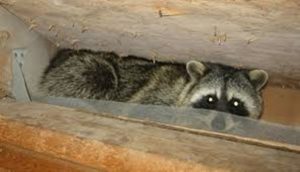 If you hear a suspicious sound from your attic, you might be unsure if it originates from your home or if you have pests lurking upstairs. Use this blog to determine if you have attic pests or a noisy home for your peace of mind.
If you hear a suspicious sound from your attic, you might be unsure if it originates from your home or if you have pests lurking upstairs. Use this blog to determine if you have attic pests or a noisy home for your peace of mind.
What Sounds Do Rodents Make?
Rodents usually consist of mice and rats. If mice and rats are in your attic, you’ll often be able to tell from the distinctive noises they make.
For example, have you heard scratching or scampering noises in your attic space? These little pests travel a lot as they search for food, shelter, and nesting spots. If you’ve heard gnawing or chewing, then you might want to look for damaged wood or wiring.
Squeaking, chirping, or teeth grinding can indicate that rodents are grooming, calling out to one another, or being content. And if you hear alarming shrieking or thumping noises, you might have rodents battling each other.
Another good way to determine whether the sounds come from rats or mice or if they come from other animals is if you hear them around dusk. This is when rodents usually come out.
What Sounds Do Squirrels Make?
While many of the sounds that squirrels make are similar to rodents, you’ll often hear them throughout the day instead of at dusk. That way, you’ll be able to know you have an active daytime pest.
With squirrels, you might hear scurrying as they move throughout your attic. They might run or scrape against the floor or walls. They might also rustle as they do their various activities.
If you hear rolling, you might hear the acorns or nuts as squirrels collect and hide them throughout your attic space. If you happen to stumble across their cache, then this is also a sign you have squirrels in your attic.
What Sounds Do Raccoons Make?
As larger pests, raccoons can inflict considerable damage on an attic. If you have raccoons, you’ll likely hear them during nighttime, as they are nocturnal. However, raccoons can be active during the daytime too. Many people might think that daytime raccoons are sick, but healthy raccoons, like mother raccoons, might be on the hunt for food.
Additionally, the time of year might indicate raccoons. Springtime is a major time for raccoons, as that is when they birth babies. If you don’t trap and release raccoons during this time, their presence might continue throughout the summer.
Due to their size, raccoons typically make louder noises than rodents. For example, if you hear stomping in your attic and you know no one is up there, then you might have raccoons. However, the most distinctive sound you might hear from raccoons in the attic is crying babies or vocal mothers. Combine this with the possibility of springtime nesting, and you can be almost certain of the presence of raccoons.
What Sounds Do Houses Make?
While sounds originate from all over the house, you might hear them in the attic. How can you be sure of what a normal house sound is?
If you hear cracking, you likely hear the expansion and contraction of your home as it cools down from the day. You might also hear creaking from floorboards or walls throughout the house and in the attic, especially in older homes.
Appliances and HVAC systems might hum when they run, while pipes might rattle and ducts might pop from a change in airflow. While you should be alert to any changes in your home, most of these noises are normal and don’t indicate a pest infestation.
What Should You Do If You Hear Noises in Your Attic?
If you’re at all unsure or concerned at noises you’ve heard, especially if they’re new, increasing, or abnormal, then get in touch with Guardian Pest Control. We can listen for abnormal noises and look for other signs of pest infestation. If we determine that you have a pest, we can provide the right treatment for your home. Let us know what questions you have.
